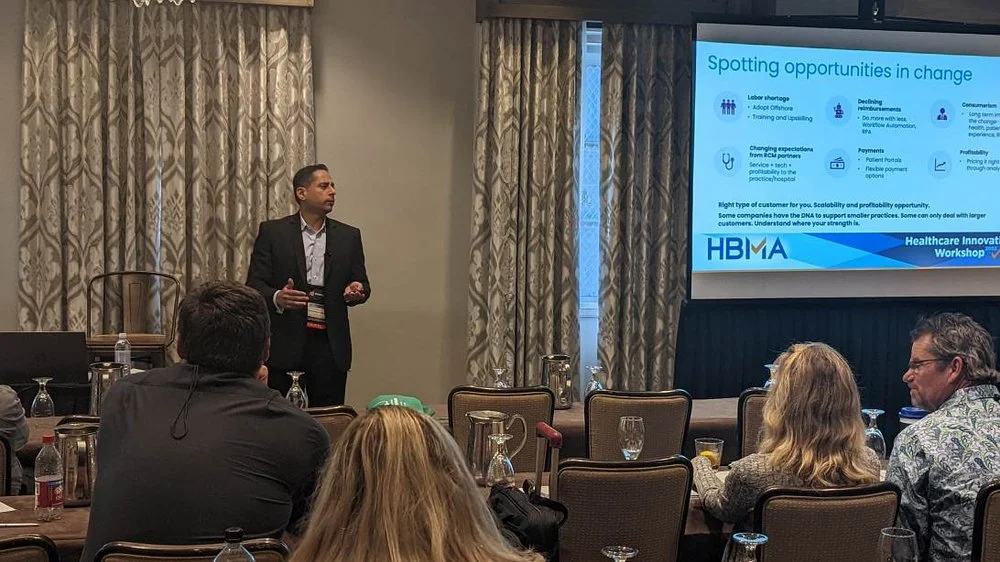MBW CEO, Vinod Sankaran speaks on Process Automation and AI at the HBMA Healthcare Innovation Workshop
The Healthcare Business Management Association (HBMA) healthcare innovation workshop was held on March 20, 2022, in New Orleans. This year’s theme was “Increasing Efficiency in Revenue Cycle Management through innovation. Our CEO, Vinod Sankaran, addressed healthcare industry leaders and revenue cycle experts on “Automation/Changes in Revenue Cycle 2022 & Beyond”.

We bring you a summary of the points discussed by Vinod at the event.
Spotting Opportunities in changes
- Billing companies must enable healthcare providers to respond to multiple headwinds such as rising consumerism, declining reimbursements, and labor shortages. These headwinds require that billing companies allow them to achieve more with less effort, implement new technology and address revenue cycle challenges with analytical tools.
- Work-from-home is the new normal. Since a more significant percentage of the revenue cycle workforce now operates remotely, there is a need to go beyond the traditional work measurement. From measuring just the impact on revenue cycle outcomes, RCM leaders must now ensure that their distributed teams are on a common workflow platform that can measure the productivity of each employee. This will also help them combat the labor shortages that will continue to cripple revenue cycle outcomes.
- Outsourcing and offshoring can help healthcare providers and billing companies reduce their total costs to process.
Importance of Workflow and tracking human productivity
The US healthcare market is seeing an unprecedented labor crisis, which is increasing each passing month. As it becomes difficult to find and hire qualified employees, revenue cycle operations leaders must find ways to do more with fewer resources. Automating workflow processes will help your team focus on deliverables and improve productivity. One may argue that investments are not available for process automation initiatives with the grim financial situations. One solution is to leverage a partner’s workflow to create globally distributed teams aligned to achieve the best-in-class revenue cycle outcomes.
Knowledge Management and Documentation
Most RCM Operations leaders would agree on adhering to client-specific work instructions. Each practice/specialty has its nuances that impact the success of the revenue cycle. Consider utilizing Knowledge Management tools to help your agents get to work instructions faster. If you are already using an offshore provider, you may want to check on the quality of work instructions and frequency of updates. If you are considering a transition to an offshore service provider, ensure that the work instructions are effectively documented.

RPA and AI and how it is changing Revenue Cycle
Robotic Process Automation and AI are becoming increasingly relevant across the chain of revenue cycle processes. While many RCM services providers and healthcare providers lean towards utilizing off-the-shelf automation products, they must consider the costs of operating automation solutions and recognize the risks they would be carrying. A small process change can cause the automation to break down. Besides, the investments in process automation can be costly and include costs to develop/deploy the automation solution and maintain the automation solution as the underlying processes change. The choice before revenue cycle operations leaders is to either build the solution or to utilize third-party outsourcing services providers who have the necessary experience and expertise in managing large-scale process automation programs.
Either way, the time is now to prepare your business for the AI future. Most billing processes are routine, and bots can automate a chunk of revenue cycle processes with some training. We see effective deployments in payment posting, verification of benefits, and claims status checks. Where healthcare providers utilize multiple systems, Robotic process automation solutions can eliminate redundant data entry.
Patient Experience
While many third-party billing companies focus on the revenue cycle, i.e., making the flow of money in healthcare faster and cheaper to process, they seldom pay attention to patient experience.
Patient experience is as much about equipping patients to pay online and get easy-to-understand patient statements as providing flexible payment plans. As the patient emerges as the key payer for healthcare services, predicting patient responsibility for payments during the registration process can reduce the burden on back-end processes and make patient collections easier. While the problem may not be significant in non-acute care, acute care services are costly, and the patient’s responsibility for payments is substantial. Many innovative payment models are currently being developed that offer a combination of these features.
The changing role of clearing houses
Clearinghouses such as WayStar, and Availity offer multiple solutions based on RPA, EDI with payers, and AI. These include eligibility and prior authorization. Asking your clearinghouse how they are changing the services they provide to you may be excellent. EDI is a way to make quick progress on your automation journey.
Legacy software is draining your resources.
We see the growing importance of API-based data exchanges across many healthcare systems’ technologies. Even in the case of data exchanges with clearinghouse systems and payer technologies, the lack of a modern revenue cycle platform may cripple your ability to take advantage of emerging straight-through processing technologies. Consider moving to new age RCM platforms that help you reduce your workload significantly
Transparent, automated reporting to your healthcare clients
Explore the functionality in your RCM system to provide reports to your clients. If the functionality of auto-triggering reports does not exist or additional analysis is required to make sense of the data, consider using RPA/AI solutions to automate reporting
Relooking at your business model
Most billing companies have failed to innovate and relook at their business model for the last three decades. Some have been tied to specific specialties, and others have just focused on traditional services to physician practices. Infusing scalability in the business model is one area that most billing company CEOs have struggled with.
In recent times, we have seen healthcare billing companies innovate and expand their services portfolio with technology, creating a new level of differentiation. Most successful large-scale billing services providers have focused on tech innovation and let their offshore partners excel in providing the services layer.
– Vinod Sankaran, CEO/Founder of Medical Billing Wholesalers
About HBMA
HBMA was formed in 1993 by a core group of individuals who had a vision of a forum rich in resources to guide their collective efforts toward a highly professional image within the medical community.
The Healthcare Business Management Association (HBMA), a non-profit professional trade association, is a significant voice in the revenue cycle management industry in the United States. HBMA members collectively submit a substantial percentage of all initial medical claims to the country’s governmental and commercial payers. Those claims not submitted by HBMA member companies are usually submitted directly by the provider.
About Medical Billing Wholesalers
Medical Billing Wholesalers (MBW) provides business process outsourcing, revenue cycle KPI measurement, robotic process automation tools to healthcare providers (hospitals, health systems, and physician practices), revenue cycle, and coding services aggregators. The company operates from 2 delivery centers in Chennai and Bangalore and has sales offices in New York, Dallas, Fort Lauderdale, Las Vegas, and Nashville. The company supports over 2,000 physicians across over 40+ medical specialties and uses over 30+ EMR/practice management systems. In addition, the company applies proprietary workflow tools and robotic process automation capabilities to help clients do more with the revenue cycle.
To learn how Medical Billing Wholesalers can help your healthcare organization achieve financial success, visit https://www.medicalbillingwholesalers.com

